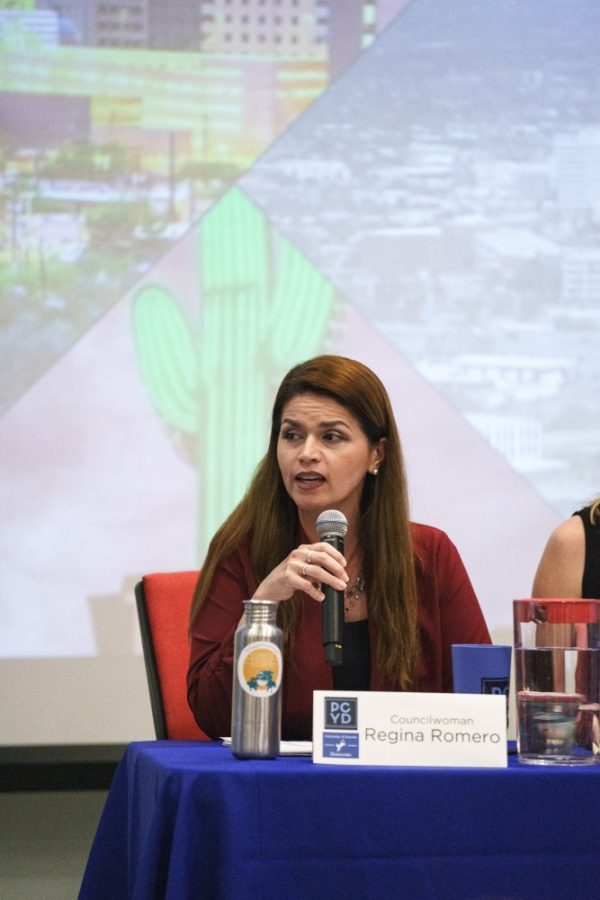Regina Romero was elected mayor of Tucson Tuesday, Nov. 5, making her the first Latina mayor of the city.
“No single person can make history on their own,” Romero said after the unofficial election results were released.
Romero’s platforms for the campaign included climate change action, improving roads, creating jobs, improving education, addressing homelessness and improving equity.
At the democratic mayoral forum in April, Romero said she agrees with the sentiment of Proposition 205 but that it leaves Tucson in a vulnerable financial position.
“These sanctuary cities are in California or Seattle, Washington,” Romero said in the forum. “They are not in Arizona. In Arizona, the state legislature has been micromanaging cities for the past 10 years and passing anti-immigrant laws that hurt our communities.”
Another platform Romero ran on was improving the Tucson transit system.
“The transit system should be part of the sustainability conversation,” Romero said at the forum. “The transit system itself needs to become electric and it needs to become more affordable and reliable for our community.”
Romero was endorsed by Sen. Kyrsten Sinema, Congressman Raúl Grijalva, Congresswoman Ann Kirkpatrick and Congressman Ruben Gallego.
Romero received contributions from individuals totaling over $100,000, including a $200 contribution from former Mayor Jonathan Rothschild in October.
Twenty-five University of Arizona professors and 22 UA staff members also donated to Romero’s campaign.
Romero drew criticism from Steve Farley, democratic mayoral primary candidate, for calling herself the only “clean election” mayoral candidate while using PAC money to push that message.
According to Chispa Arizona’s third-quarter report, the PAC has donated over $170,000 to Romero’s campaign.
United 4 Arizona reported over $140,000 benefitting Romero in their pre-primary election report.
Follow Priya Jandu on Twitter









